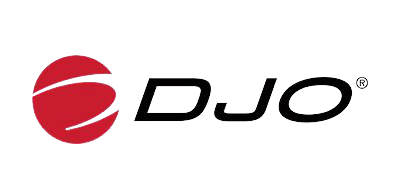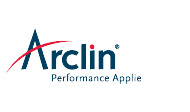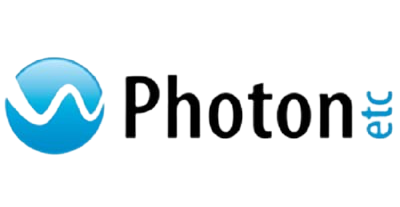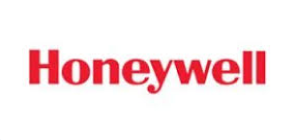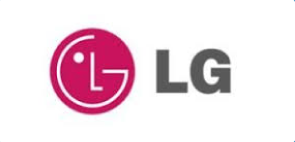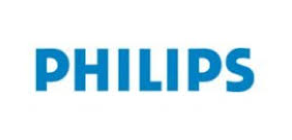Report Summary
Eternity Insights has published a new study on Global Antifreeze Proteins (AFP) Market focusing on key segments as by Type (Fish AFPs, Plant AFPs, Insect AFPs, Sea Ice Organisms AFPs), by Application (Medicine, Food, Other), and by region. This deep dive re-search report highlights the market and competitive intelligence across the key segments of the mar-ket. The report also considers the impact of COVID-19 on the global Antifreeze Proteins (AFP) Market.
The report considers 2018-2020 as historic period, 2021 as base year, and 2022-2028 as forecast period. The report includes quantitative analysis of the market supported by the market drivers, challenges, and trends to accurately map the market scenario and competition. Moreover, key insights related to market having direct impact on the market will also be covered.
Antifreeze Proteins (AFP) Market report is based on robust research methodology designed using blend of research ap-proaches developed using secondary/desk research and validated through the primary research and expert insights. Eternity Insights also uses paid data bases such as FACIVA, Hoovers, and other bench-marking and forecasting tools to provide accurate statistical analysis of supply and demand trends.
Global Antifreeze Proteins (AFP) Market Size, 2018-2028 (USD Million)

To learn more about this report
Global Antifreeze Proteins (AFP) Market Segmentation:
Antifreeze Proteins (AFP) Market, By Type
- Fish AFPs
- Plant AFPs
- Insect AFPs
- Sea Ice Organisms AFPs
Antifreeze Proteins (AFP) Market, By Application

To learn more about this report
Geographically, the market is categorized in to five regions as North America, Europe, Asia Pacific, Latin America, and the Middle East and Africa. North America region dominates the global Antifreeze Proteins (AFP) market in terms of demand generation. The Antifreeze Proteins (AFP) market in Asia Pacific region is expected to grow at significantly high growth rate. The regional market is further sub-segmented and analyzed at granular level across key countries. The report will include market size and forecast for Antifreeze Proteins (AFP) market for below listed coun-tries across each region.
North America (U.S. and Canada), Europe (Germany, France, Italy, UK, Spain, and Rest of Europe), Asia Pacific (China, India, Japan, Australia, and Rest of Asia Pacific region); Latin America (Brazil, Mexico, and rest of the Latin America); Middle East and Africa (GCC, South Africa, and Rest of the Middle East and Africa).
Global Antifreeze Proteins (AFP) Market Taxonomy:

To learn more about this report
Global Antifreeze Proteins (AFP) Market Competitive Landscape
The global Antifreeze Proteins (AFP) market analysis report covers detailed analysis of competitive scenario across globe. The report includes profiles of leading players covering below details
- Company Overview
- Financial Analysis
- Product Portfolio Analysis
- Strategic Overview
- SWOT Analysis
List of Companies Profiled in the report:
- Unilever
- Kaneka
- Global Fresh Biotech
- Other
- Other Players of Specific Interest can be added based on requirement
Market Segmentation
| Report Attributes |
Details |
| The market size value in 2021 |
USD XX.XX Million |
| CAGR (2021 - 2028) |
XX.XX % |
| The Revenue forecast in 2028 |
USD XX.XX Million |
| Base year for estimation |
2021 |
| Historical data |
2018-2019 |
| Forecast period |
2022-2028 |
| Quantitative units |
- Revenue in USD Million
- CAGR from 2021 to 2028
|
| Report coverage |
Revenue forecast, company ranking, competitive landscape, growth factors, and trends |
| Segments covered |
By Type Outlook, Application Outlook, Regional Outlook |
| By Type Outlook |
Fish AFPs, Plant AFPs, Insect AFPs, Sea Ice Organisms AFPs |
| By Application Outlook |
Medicine, Food, Other |
| Regional scope |
North America, Europe, Asia Pacific, Latin America, Middle East & Africa |
| Country scope |
U.S., Canada, U.K., Germany, France, BENELUX, China, India, Japan, South Korea, Brazil, Saudi Arabia, UAE, Turkey |
| Key companies profiled |
Unilever, Kaneka, Global Fresh Biotech, Other |
| Customization Available |
Yes, the report can be tailored to meet your specific requirements. |
Key Benefits to the stake holders
- Qualitative and quantitative analysis of the market based on segmentation involving both economic as well as non-economic factors
- Provision of market value (USD Billion) and volume (Tons) data for each segment and sub-segment
- Indicates the region and segment that is expected to witness the fastest growth as well as to dominate the market
- Analysis by geography highlighting the consumption of the product/service in the region as well as indicating the factors that are affecting the market within each region
- Competitive landscape which incorporates the market ranking of the major players, along with new service/product launches, partnerships, business expansions and acquisitions in the past five years of companies profiled
- Extensive company profiles comprising of company overview, company insights, product benchmarking and SWOT analysis for the major market players
- The current as well as the future market outlook of the industry with respect to recent developments (which involve growth opportunities and drivers as well as challenges and restraints of both emerging as well as developed regions
- Includes an in-depth analysis of the market of various perspectives through Porter’s five forces analysis
- Provides insight into the market through Value Chain
- Market dynamics scenario, along with growth opportunities of the market in the years to come
Table Of Contents
Table of Contents
Chapter 1 Antifreeze Proteins (AFP) Market Overview
1.1 Antifreeze Proteins (AFP) Definition
1.2 Global Antifreeze Proteins (AFP) Market Size Status and Outlook (2014-2026)
1.3 Global Antifreeze Proteins (AFP) Market Size Comparison by Region (2014-2026)
1.4 Global Antifreeze Proteins (AFP) Market Size Comparison by Type (2014-2026)
1.5 Global Antifreeze Proteins (AFP) Market Size Comparison by Application (2014-2026)
1.6 Global Antifreeze Proteins (AFP) Market Size Comparison by Sales Channel (2014-2026)
1.7 Antifreeze Proteins (AFP) Market Dynamics
1.7.1 Market Drivers/Opportunities
1.7.2 Market Challenges/Risks
1.7.3 Market News (Mergers/Acquisitions/ Expansion)
Chapter 2 Antifreeze Proteins (AFP) Market Segment Analysis by Player
2.1 Global Antifreeze Proteins (AFP) Sales and Market Share by Player (2017-2019)
2.2 Global Antifreeze Proteins (AFP) Revenue and Market Share by Player (2017-2019)
2.3 Global Antifreeze Proteins (AFP) Average Price by Player (2017-2019)
2.4 Players Competition Situation & Trends
2.5 Conclusion of Segment by Player
Chapter 3 Antifreeze Proteins (AFP) Market Segment Analysis by Type
3.1 Global Antifreeze Proteins (AFP) Market by Type
3.1.1 Fish AFPs
3.1.2 Plant AFPs
3.1.3 Insect AFPs
3.1.4 Sea Ice Organisms AFPs
3.2 Global Antifreeze Proteins (AFP) Sales and Market Share by Type (2014-2018)
3.3 Global Antifreeze Proteins (AFP) Revenue and Market Share by Type (2014-2018)
3.4 Global Antifreeze Proteins (AFP) Average Price by Type (2014-2018)
3.5 Leading Players of Antifreeze Proteins (AFP) by Type in 2018
3.6 Conclusion of Segment by Type
Chapter 4 Antifreeze Proteins (AFP) Market Segment Analysis by Application
4.1 Global Antifreeze Proteins (AFP) Market by Application
4.1.1 Medicine
4.1.2 Food
4.1.3 Other
4.2 Global Antifreeze Proteins (AFP) Sales and Market Share by Application (2014-2018)
4.3 Leading Consumers of Antifreeze Proteins (AFP) by Application in 2018
4.4 Conclusion of Segment by Application
Chapter 5 Antifreeze Proteins (AFP) Market Segment Analysis by Sales Channel
5.1 Global Antifreeze Proteins (AFP) Market by Sales Channel
5.1.1 Direct Channel
5.1.2 Distribution Channel
5.2 Global Antifreeze Proteins (AFP) Sales and Market Share by Sales Channel (2014-2018)
5.3 Leading Distributors/Dealers of Antifreeze Proteins (AFP) by Sales Channel in 2018
5.4 Conclusion of Segment by Sales Channel
Chapter 6 Antifreeze Proteins (AFP) Market Segment Analysis by Region
6.1 Global Antifreeze Proteins (AFP) Market Size and CAGR by Region (2014-2026)
6.2 Global Antifreeze Proteins (AFP) Sales and Market Share by Region (2014-2018)
6.3 Global Antifreeze Proteins (AFP) Revenue and Market Share by Region (2014-2018)
6.4 North America
6.4.1 North America Market by Country
6.4.2 North America Antifreeze Proteins (AFP) Market Share by Type
6.4.3 North America Antifreeze Proteins (AFP) Market Share by Application
6.4.4 United States
6.4.5 Canada
6.4.6 Mexico
6.5 Europe
6.5.1 Europe Market by Country
6.5.2 Europe Antifreeze Proteins (AFP) Market Share by Type
6.5.3 Europe Antifreeze Proteins (AFP) Market Share by Application
6.5.4 Germany
6.5.5 UK
6.5.6 France
6.5.7 Italy
6.5.8 Russia
6.5.9 Spain
6.6 Asia-Pacific
6.6.1 Asia-Pacific Market by Country
6.6.2 Asia-Pacific Antifreeze Proteins (AFP) Market Share by Type
6.6.3 Asia-Pacific Antifreeze Proteins (AFP) Market Share by Application
6.6.4 China
6.6.5 Japan
6.6.6 Korea
6.6.7 India
6.6.8 Southeast Asia
6.6.9 Australia
6.7 South America
6.7.1 South America Market by Country
6.7.2 South America Antifreeze Proteins (AFP) Market Share by Type
6.7.3 South America Antifreeze Proteins (AFP) Market Share by Application
6.7.4 Brazil
6.7.5 Argentina
6.7.6 Colombia
6.7.7 Chile
6.8 Middle East & Africa
6.8.1 Middle East & Africa Market by Country
6.8.2 Middle East & Africa Antifreeze Proteins (AFP) Market Share by Type
6.8.3 Middle East & Africa Antifreeze Proteins (AFP) Market Share by Application
6.8.4 Egypt
6.8.5 Saudi Arabia
6.8.6 South Africa
6.8.7 Nigeria
6.9 Conclusion of Segment by Region
Chapter 7 Profile of Leading Antifreeze Proteins (AFP) Players
7.1 Unilever
7.1.1 Company Snapshot
7.1.2 Product/Business Offered
7.1.3 Business Performance (Sales, Price, Revenue, Gross Margin and Market Share)
7.1.4 Strategy and SWOT Analysis
7.2 Kaneka
7.3 Global Fresh Biotech
Chapter 8 Upstream and Downstream Analysis of Antifreeze Proteins (AFP)
8.1 Industrial Chain of Antifreeze Proteins (AFP)
8.2 Upstream of Antifreeze Proteins (AFP)
8.2.1 Raw Materials
8.2.2 Labor Cost
8.2.3 Manufacturing Expenses
8.2.4 Manufacturing Cost Structure
8.2.5 Manufacturing Process
8.3 Downstream of Antifreeze Proteins (AFP)
8.3.1 Leading Distributors/Dealers of Antifreeze Proteins (AFP)
8.3.2 Leading Consumers of Antifreeze Proteins (AFP)
Chapter 9 Development Trend of Antifreeze Proteins (AFP) (2019-2028)
9.1 Global Antifreeze Proteins (AFP) Market Size (Sales and Revenue) Forecast (2019-2028)
9.2 Global Antifreeze Proteins (AFP) Market Size and CAGR Forecast by Region (2019-2028)
9.3 Global Antifreeze Proteins (AFP) Market Size and CAGR Forecast by Type (2019-2028)
9.4 Global Antifreeze Proteins (AFP) Market Size and CAGR Forecast by Application (2019-2028)
9.5 Global Antifreeze Proteins (AFP) Market Size Forecast by Sales Channel (2019-2028)
Chapter 10 Appendix
10.1 Research Methodology
10.2 Data Sources
10.3 Disclaimer
10.4 Analysts Certification








